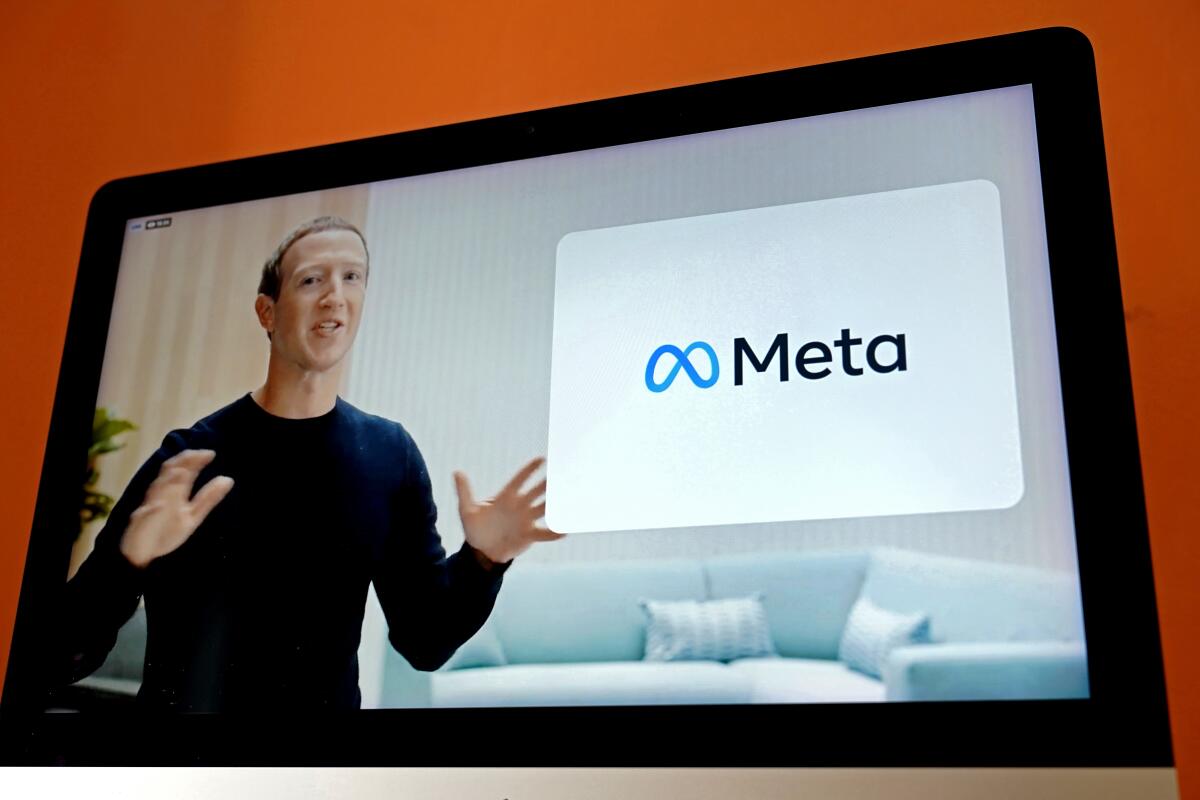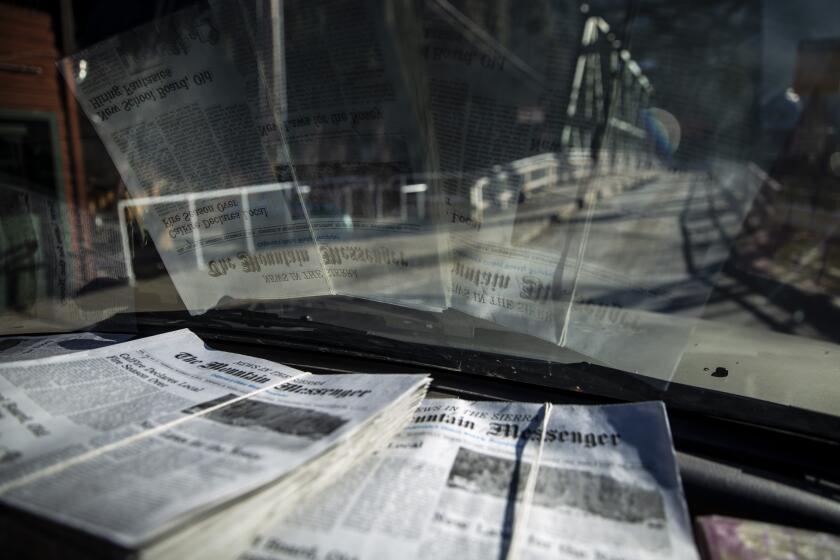Meta threatens to pull news from Facebook, Instagram if California bill passes

Californians may no longer be able to read daily news from their Facebook and Instagram feeds if the state Legislature passes a bill forcing tech platforms to pay publishers.
That’s the threat that parent company Meta issued Wednesday via Twitter.
“If the Journalism Preservation Act passes, we will be forced to remove news from Facebook and Instagram rather than pay into a slush fund that primarily benefits big, out-of-state media companies under the guise of aiding California publishers,” Meta spokesman Andy Stone tweeted.
California Assemblymember Buffy Wicks (D-Oakland) sponsored the California Journalism Preservation Act, a bipartisan bill that would require online platforms such as Facebook to remit a journalism usage fee to eligible digital journalism providers when they sell advertising alongside news content. The bill would also require publishers to invest 70% of those profits in preserving journalism jobs in California.
The bill passed in the Assembly with bipartisan support Thursday and will move to the state Senate next. In response to concerns raised about the legislation, Wicks told fellow lawmakers that the bill is “not a perfect product right now” and will continue to undergo revision.
A new measure was introduced in the California State Assembly on Monday that would require companies such as Facebook and Google to pay publishers for news content.
The bill has strong support from news advocacy groups including the California News Publishers Assn. and the News/Media Alliance. (The Los Angeles Times is a member of both organizations and supports the proposed legislation.)
Wicks called Meta’s response “a scare tactic that they’ve tried to deploy, unsuccessfully, in every country that’s attempted this.” The nonprofit News/Media Alliance called the threat “undemocratic and unbecoming.”
A group of industry trade organizations, representing the California Chamber of Commerce, NetChoice and others, expressed opposition to the bill in a joint letter to lawmakers. The group argued that the money would go to large out-of-state publications and broadcasting conglomerates rather than supporting local news.
The bill would “provide financial incentives for clickbait rather than quality journalism” and “require the subsidization of all kinds of potentially problematic publications that could fit under the bill’s broad definitions,” the letter said.
Wicks’ legislation copies measures in other countries that have attempted to address the shift in digital media traffic and revenue.
While many publishers and newsroom unions have voiced support for the California Journalism Preservation Act, some organizations worry it could make things worse.
In February 2021, Australia passed a law called the News Media Bargaining Code that required Google and Meta to pay journalism outlets for their content. The law also requested that tech companies give news outlets advance notice in cases of algorithm changes. In response, Facebook briefly blocked publishers and users from sharing news links on its platform. As a result, total news traffic dropped 13%, according to Chartbeat. Facebook restored news content days later after the Australian government agreed to make some changes to the News Media Bargaining Code.
The Australian government released a report in December detailing the law’s success in inking 30 deals between media outlets and tech platforms. Canada, Germany and Indonesia have considered similar measures.
Times staff writer Jaimie Ding contributed to this report.
More to Read
Inside the business of entertainment
The Wide Shot brings you news, analysis and insights on everything from streaming wars to production — and what it all means for the future.
You may occasionally receive promotional content from the Los Angeles Times.













